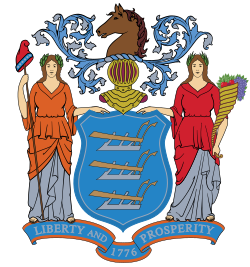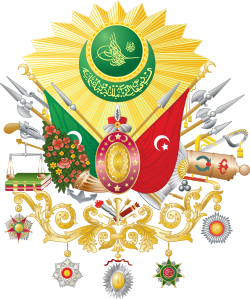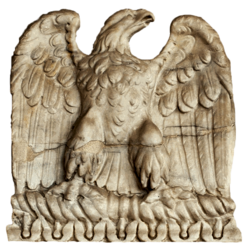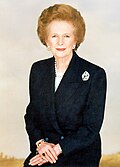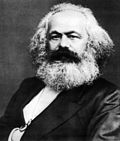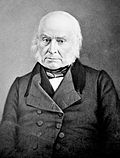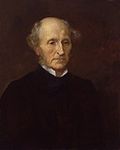George Orwell
| Main | Topics and categories | Tasks and projects |
The Politics portal

Politics (from Ancient Greek πολιτικά (politiká) 'affairs of the cities') is the set of activities that are associated with making decisions in groups, or other forms of power relations among individuals, such as the distribution of status or resources. The branch of social science that studies politics and government is referred to as political science.
Politics may be used positively in the context of a "political solution" which is compromising and non-violent, or descriptively as "the art or science of government", but the word often also carries a negative connotation. The concept has been defined in various ways, and different approaches have fundamentally differing views on whether it should be used extensively or in a limited way, empirically or normatively, and on whether conflict or co-operation is more essential to it.
A variety of methods are deployed in politics, which include promoting one's own political views among people, negotiation with other political subjects, making laws, and exercising internal and external force, including warfare against adversaries. Politics is exercised on a wide range of social levels, from clans and tribes of traditional societies, through modern local governments, companies and institutions up to sovereign states, to the international level.
In modern states, people often form political parties to represent their ideas. Members of a party often agree to take the same position on many issues and agree to support the same changes to law and the same leaders. An election is usually a competition between different parties.
A political system is a framework which defines acceptable political methods within a society. The history of political thought can be traced back to early antiquity, with seminal works such as Plato's Republic, Aristotle's Politics, Confucius's political manuscripts and Chanakya's Arthashastra. (Full article...)
Selected article
The Second Malaysia Plan was an economic development plan set out by the government of Malaysia, with the goal of implementing the aims of the New Economic Policy. It aimed to "restructure" Malaysian society and overturn Chinese Malaysian and foreign hegemony in the economy of Malaysia so that the Malays would not be disadvantaged economically. Although the First Malaysia Plan had also set out to tackle the problem of poverty, especially among the Malays, it had not been very successful, and may have been a factor in the May 13 Incident when racial rioting broke out in Kuala Lumpur. The Second Malaysia Plan was regarded by some as excessive in its zeal to increase Malay participation in the economy, and the government accordingly scaled back the emphasis on restructuring the economy when the plan ended.
Featured picture
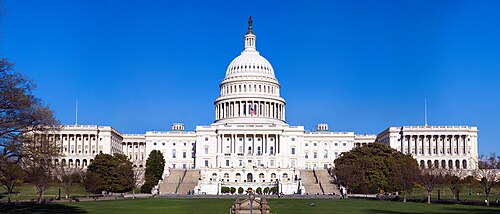
The western (front) side of the United States Capitol. The U.S. Capitol serves as the location for Congress, the legislative branch of the U.S. federal government. It is located in Washington, D.C., on top of Capitol Hill at the east end of the National Mall. The building is marked by its central dome above a rotunda and two wings. It is an exemplar of the Neoclassical architecture style.
Selected quote
Selected biography
Margaret Thatcher (1925–2013) was a British politician and the first female Prime Minister of the United Kingdom, a position she held from 1979 to 1990. She was a member of the Conservative Party and the figurehead of a political ideology known as Thatcherism. Even before coming to power she was nicknamed The Iron Lady in Soviet propaganda, an appellation which stuck. The changes she set in motion between coming to power and 1985 were profound, and altered much of the economic, cultural and commercial landscape of Britain and, by example, the world as a whole. Along the way she also aimed to roll back the welfare state, or "nanny state", as she termed it. Her popularity finally declined when she replaced the unpopular local government rates tax with the even less popular Community Charge. At the same time the Conservative Party began to split over her sceptical approach to Economic and Monetary Union of the European Union. Her leadership was challenged from within and she was forced to resign in 1990, her loss at least partly due to inadequate advice and campaigning.
Did you know (auto-generated) -

- ... that the political and media storm around so-called African gangs in Australia has been described by academics as a moral panic?
- ... that Dmitri Shostakovich denounced his own Tahiti Trot, an orchestral arrangement of "Tea for Two", as a political blunder?
- ... that Aymara legislator Rafael Quispe's humorous style of political activism led one Bolivian parliamentarian to describe him as the "Chapulín Colorado" of the Legislative Assembly?
- ... that a year after becoming the first woman president of the Canadian Political Science Association, Caroline Andrew moderated the first Canadian leaders' debate on women's issues?
- ... that even though the Legislative Assembly of Quebec ordered a monument of Maurice Duplessis in front of its building, later premiers hid it for 16 years to avoid political tensions?
- ... that Nargess Eskandari-Grünberg, the new mayor of Frankfurt, gave birth to her first child while a political prisoner in the wake of the Iranian Revolution?
More did you know...
- ...that the Japanese Farmer-Labour Party was banned just a few hours after its foundation in 1925?
- ...that Glenn Beck introduced a "Black-Robed Regiment" of pastors from various denominations during his Restoring Honor rally in 2010, and launched a news website called The Blaze three days later?
- ...that the book Targeted Killing in International Law argues support in the Western world for targeted killing increased following the September 11 attacks?
- ...that Nazi scientists claimed to have trained a dog to call "Adolf Hitler" as "Mein Führer"?
- ...that for many years, the Russian Soviet Republic did not have its Communist Party?
- ...that the World War II idea of Polish-Czechoslovakian confederation was eventually discarded by the Czechs, whose leader chose instead to believe in the Soviet Union promises of alliance?
- ...that Chinese Taipei is the designated name the Republic of China (Taiwan) uses in most international organizations?
- ...that the controversial Iraq De-Ba'athification policy banned anyone affiliated with the Ba'ath Party from working in the public sector?
In this month
- June 28, 2004 - Canadian federal elections occur; the Liberal party loses its absolute majority.
News and Current events
- August 11: 4 local government areas in New South Wales, Australia locked down after COVID-19 case
- August 11: Australia: AstraZeneca vaccine access expanded by Victorian government
- August 1: Australia: Victorian lockdown lifted
- July 29: Tunisia's president dismisses prime minister, suspends parliament
- July 25: Australia: Wikinews interviews Reg Kidd, mayor of the City of Orange, about COVID-19 lockdown and local government
- July 23: South Australia enters week-long lockdown to contain COVID-19 Delta variant spread
- July 21: Technological University Dublin senior lecturer Dr Lorcan Sirr speaks to Wikinews on housing market in Ireland
- July 21: Three rural councils in New South Wales, Australia enter 7-day lockdown
- July 21: Australia: Victoria lockdown extended by a week with 85 active cases recorded
- July 15: California governor signs new state budget, eligible Californians to get stimulus payments
Topics and categories
General images
Related portals
Associated Wikimedia
The following Wikimedia Foundation sister projects provide more on this subject:
-
 Commons
Commons
Free media repository -
 Wikibooks
Wikibooks
Free textbooks and manuals -
 Wikidata
Wikidata
Free knowledge base -
 Wikinews
Wikinews
Free-content news -
 Wikiquote
Wikiquote
Collection of quotations -
 Wikisource
Wikisource
Free-content library -
 Wikiversity
Wikiversity
Free learning tools -
 Wiktionary
Wiktionary
Dictionary and thesaurus

 Read
Read
 AUTHORPÆDIA is hosted by Authorpædia Foundation, Inc. a U.S. non-profit organization.
AUTHORPÆDIA is hosted by Authorpædia Foundation, Inc. a U.S. non-profit organization.





